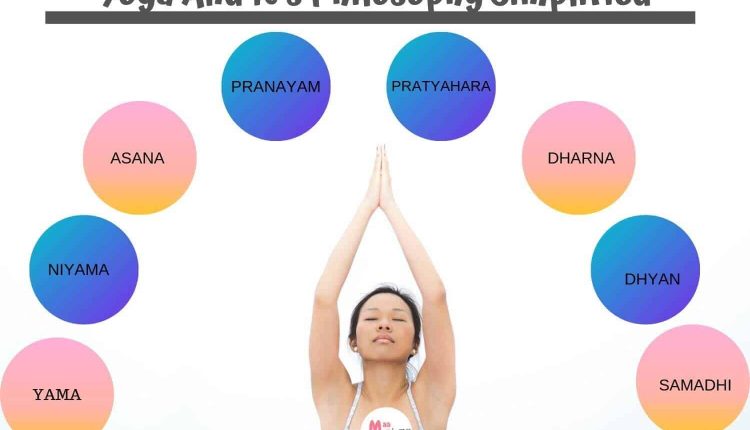In the gentle embrace of dawn, as the world stirs awake, countless individuals unfurl their yoga mats, seeking more than just physical flexibility. Yoga, with its ancient roots and profound philosophy, offers a pathway to personal transformation that transcends the boundaries of the mat. This journey is not merely about mastering poses but about delving into a rich tapestry of wisdom that nurtures the mind, body, and spirit. As we explore the depths of yoga philosophy, we uncover timeless teachings that illuminate the path to self-discovery and inner change. From the foundational principles of mindfulness and balance to the liberating concepts of self-awareness and detachment, yoga philosophy offers a compass for navigating the complexities of modern life. Join us as we delve into how these ancient teachings inspire and guide personal transformation, fostering a harmonious relationship with oneself and the world.
Exploring the Roots of Yoga Philosophy and Its Impact on Personal Growth
The ancient practice of yoga is deeply intertwined with a rich tapestry of philosophical teachings that guide individuals on a path of self-discovery and personal evolution. At its core, yoga philosophy emphasizes the union of the mind, body, and spirit, offering a holistic framework for personal transformation. This philosophy is not just a set of beliefs but a lived experience that encourages individuals to delve into their inner world, fostering a sense of awareness and understanding. By embracing these teachings, one can embark on a journey toward inner peace and self-realization.
- Self-awareness: Yoga encourages practitioners to cultivate a deep sense of self-awareness, allowing them to understand their thoughts, emotions, and actions more clearly.
- Mindfulness: Through the practice of mindfulness, individuals learn to live in the present moment, reducing stress and enhancing their overall well-being.
- Non-attachment: The philosophy teaches the art of letting go, helping individuals to detach from material desires and ego-driven pursuits.
- Inner peace: By aligning with their true nature, individuals can find a sense of calm and tranquility, even amidst life’s challenges.
These principles serve as a foundation for personal growth, encouraging a shift from external validation to internal contentment. As individuals immerse themselves in yoga philosophy, they discover new dimensions of their being, paving the way for profound personal transformation.

Unveiling the Connection Between Mindfulness Practices and Inner Change
Delving into the core of yoga philosophy, one discovers a profound influence on personal transformation through its multifaceted approach to mindfulness. At its essence, yoga extends beyond physical postures, offering a comprehensive framework for inner change. The Yamas and Niyamas, ethical precepts akin to moral codes, guide practitioners towards a harmonious lifestyle. By embracing principles such as non-violence, truthfulness, and self-discipline, individuals begin to cultivate a mindset that fosters inner peace and resilience.
- Pratyahara: The practice of withdrawing the senses encourages introspection, allowing one to observe the mind’s patterns without judgment.
- Dhyana: Deep meditation cultivates a space where personal insights emerge, illuminating pathways for transformation.
- Svadhyaya: Self-study invites practitioners to reflect on their actions and beliefs, promoting a journey of self-discovery and growth.
Through these practices, yoga philosophy encourages a shift from external validation to internal awareness, empowering individuals to transform their lives from the inside out.

Harnessing the Power of Yogic Principles for Lasting Transformation
At the heart of yogic philosophy lies a rich tapestry of principles that serve as a compass for personal growth and transformation. These principles, known as the Yamas and Niyamas, form the ethical backbone of yoga practice and extend beyond the mat into daily life. The Yamas, or ethical restraints, encourage practitioners to cultivate non-violence, truthfulness, non-stealing, celibacy, and non-possessiveness. Meanwhile, the Niyamas, or personal observances, inspire individuals to embrace purity, contentment, austerity, self-study, and devotion to a higher power. Together, these guidelines foster a mindset that prioritizes inner peace, self-discipline, and mindfulness.
- Non-violence (Ahimsa): Cultivating compassion and kindness towards oneself and others.
- Truthfulness (Satya): Embracing honesty in thought, word, and deed.
- Non-stealing (Asteya): Respecting the belongings and boundaries of others.
- Purity (Saucha): Maintaining cleanliness in body, mind, and surroundings.
- Contentment (Santosha): Finding joy and satisfaction in the present moment.
By integrating these principles into daily life, individuals embark on a journey of self-discovery that transforms their perceptions and actions. This profound shift in perspective encourages a deeper connection with oneself and the world, leading to lasting personal transformation. As practitioners continue to align their lives with these timeless teachings, they find themselves naturally evolving towards a more harmonious and fulfilled existence.

Practical Steps to Integrate Yoga Philosophy into Daily Life for Personal Development
To truly embrace yoga philosophy in your daily life, begin by fostering mindfulness and self-awareness. This can be achieved through simple yet profound practices that allow you to connect more deeply with your inner self. Start with the practice of Ahimsa, or non-violence, by cultivating kindness towards yourself and others. This can be as simple as speaking gently or making compassionate choices in your interactions.
- Santosha: Practice contentment by appreciating what you have and finding joy in the present moment.
- Svadhyaya: Engage in self-study by reflecting on your thoughts and actions through journaling or meditation.
- Tapas: Build discipline by setting small, achievable goals and committing to them daily.
Incorporate these principles into your daily routine by dedicating a few minutes each day to meditation or breathwork, which can help anchor your mind and nurture a sense of peace. By consciously applying these elements of yoga philosophy, you can cultivate a more balanced and fulfilling life, fostering personal growth and transformation.

